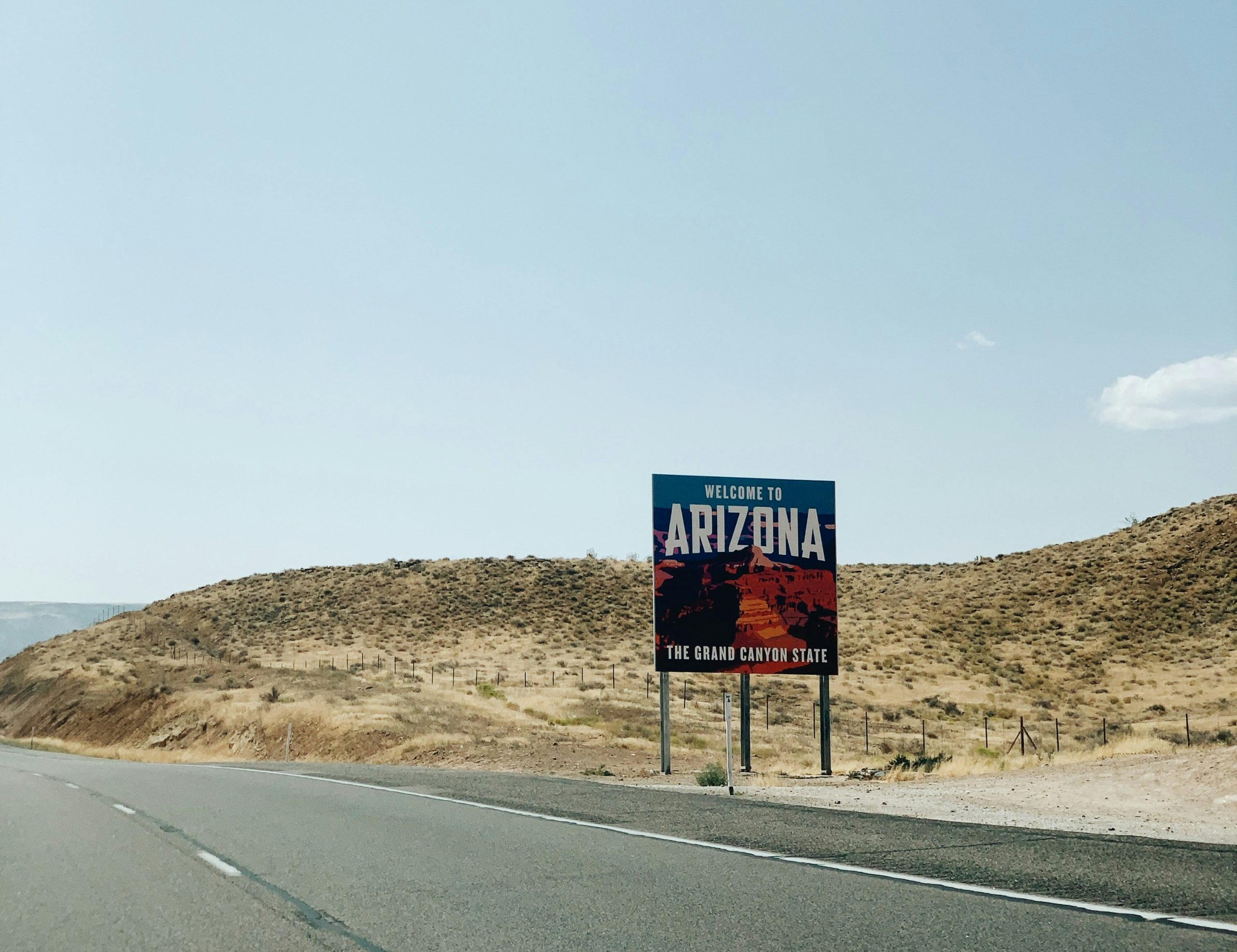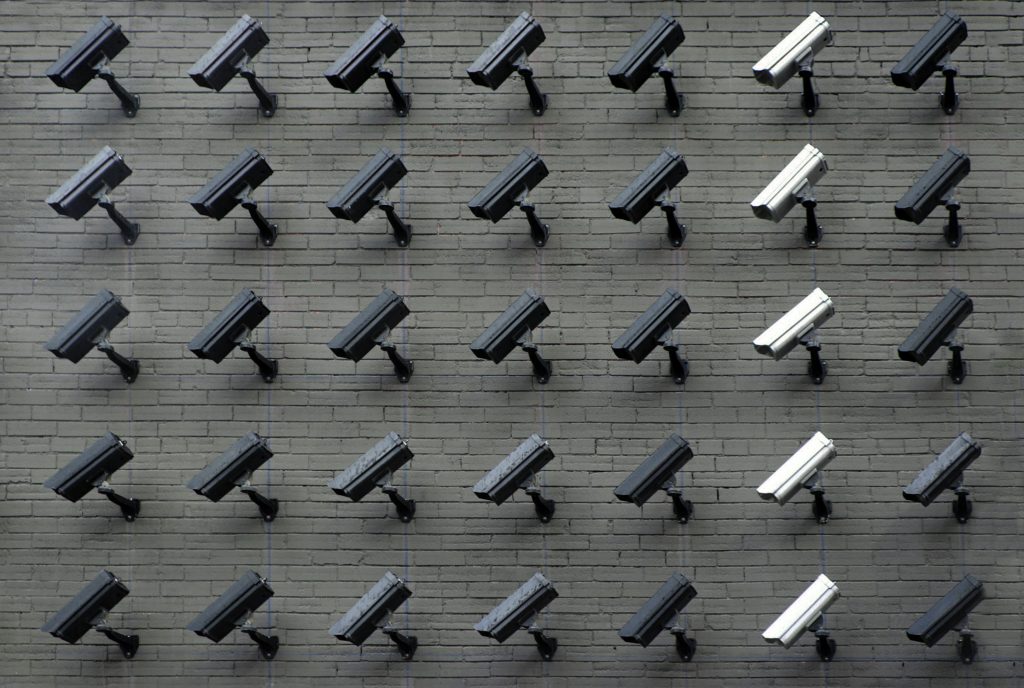Where are the Tribes? How the 2024 election would pave the way for the first tribal marijuana dispensary in Arizona

By: Ronnie Stroud*
Conventional political theory holds that each of the fifty states, in exercising their inherent police powers in fields not occupied by Congress,[1] “may serve as a laboratory; and try novel social and economic experiments without risk to the rest of the country.”[2] As inherent sovereigns with rights over both their land and members, this theory holds equally true for Tribal Nations.[3]
Competition amongst the States, Tribal nations, and even cities, is no stranger to this country. In 2017, Amazon announced plans to build a second headquarters.[4] Over 200 cities competed against one another by submitting detailed proposals and offers of tax incentives to attract Amazon to build in their city/state.[5] Tribes also joined the mix, as both the Tulalip Tribes and the Spokane Tribe of Indians in Washington State submitted bids.[6]
Given the historical demonstration of intergovernmental competition when money is involved, the absence of Arizona Tribes in the legal marijuana market is even more perplexing. In 2020, voters passed Proposition 207, which enabled the use and sale of recreational marijuana in Arizona.[7] In 2023 alone, the State of Arizona raked-in over $200 million in tax revenue.[8] So where are the Tribes, and why are they not joining the marijuana sweepstakes?
The first whisperings of speculation on when any of the Tribes would start selling marijuana started almost ten years ago.[9] The fact that Tribes are no strangers to other highly regulated goods makes their absence even more puzzling. The gaming,[10] fireworks,[11] and tobacco[12] industries are common examples of the existence of differing laws between states and adjacent Tribal nations. From my home State of Washington, a common practice occurred in the tobacco industry, where non-tribal Washingtonians would drive to Native Tribes situated in Washington State to escape paying Washington State’s higher collective sin and sales taxes on tobacco products.[13] Here in Arizona, the popular tourist destination of Lake Havasu City even released a public statement reminding visitors that fireworks legally purchased at a tribal store in Arizona are illegal within city limits and fully subject to state and local laws once removed from Tribal land.[14]
The answer to the Tribal absence in the Arizona marijuana market likely lies in a combination of the following: (1) federal supremacy and the continued federal illegality of all marijuana sales; (2) the inherent difficulty in selling marijuana because of its criminal nature at the federal level; and (3) the personal values of Tribal nations in Arizona. The 2024 election could disrupt the composition of elected officials at all levels of government, potentially paving the way for the first Tribal-owned marijuana dispensary in Arizona.
Marijuana is unambiguously criminally prohibited on the federal level through the Controlled Substances Act (CSA) of 1970.[15] The CSA specifically enumerated marijuana as a Schedule I drug,[16] defined as a drug “with no currently accepted medical use and a high potential for abuse,” on par with other drugs such as heroin and various hallucinogenic substances.[17] In theory, as a Schedule I drug, marijuana receives the highest standard of regulation and prohibition.[18] A quick survey of the country reveals the opposite: today, 24 states, DC, and other territories permit the use of recreational marijuana.[19] Even more states and territories allow for the medicinal use of marijuana.[20] Recent estimates place the value of the legal marijuana market at a number exceeding $30 billion.[21] The Arizona market alone boasts an annual valuation of $1.4 billion.[22]
Despite the apparent abundance of marijuana offenders readily available for arrest, federal enforcement of the prohibition of marijuana is trending steadily downward.[23] In fact, here in the District of Arizona, we previously accounted for approximately 1900 of the 2200 convictions (nearly 90%) in 2014.[24] For 2021, we only claimed 2 of the approximately 150 convictions (less than 2%). Coincidentally enough (or maybe not so coincidentally), the decline of federal focus on marijuana crimes occurred nearly simultaneously with Proposition 207.[25] This “blind eye” approach enabled Arizona to rake in nearly $1 billion in tax revenue since the ratification of Proposition 207.[26]
Likely encouraging the blissfully ignorant enforcement policies are the guiding priorities of the United States Department of Justice (USDJ), as established by the Attorney General under the direction of the President. The lax enforcement of marijuana prohibition today likely originated from President Obama-era policies. Specifically, in 2013, the USDJ released the “Cole Memorandum” outlining that while marijuana remained illegal, limited federal resources should focus on “certain enforcement priorities” such as, among others, preventing (1) marijuana distribution to minors, (2) interstate transportation of marijuana from legal to illegal states, and (3) marijuana possession or use on federal property.[27]
However, the liberal progression on changing attitudes toward marijuana was not linear. The Trump Administration directly rescinded the permissive policies of the Obama Administration under the “determination that marijuana is a dangerous drug and that marijuana activity is a serious crime” and prosecutorial calculations should return to “well-established principles that govern all federal prosecutions.”[28] While the sentencing statistics on federal marijuana crimes suggest this abrogation likely contained more bark than bite,[29] the flip-flopping stances on marijuana enforcement between President Obama and President Trump almost certainly caused a chilling effect on the appetites for risk associated with starting a marijuana business.
Proof of the caution exercised by the legal marijuana industry exists in their banking habits. The legal marijuana industry is nearly an all-cash business.[30] Most banks (and all major banks) refuse to provide banking access for marijuana businesses because of concerns about the federal criminality of such endeavors.[31] Companies like Mastercard refuse to even allow marijuana transactions on their debit cards.[32]
Recently, the Biden Administration sought to soften the marijuana enforcement policies created under President Trump by submitting a regulatory proposal to reclassify marijuana from a Schedule I to Schedule III drug under the CSA.[33] The shift to Schedule III would still retain some elements of federal criminality, but could embolden Tribes in Arizona to join the marijuana industry by offering at least three new incentives.[34] First, distribution and possession of medical marijuana could become legal if done properly under the parameters of the Controlled Substances Act.[35] For example, Tribes in Arizona could prescribe marijuana and bill a member’s medical insurer like any other health care provider.[36] Secondly, the tax code expressly prohibits deductions or credits for commerce related to Schedule I or II substances.[37] If rescheduled, Tribes could then deduct the costs of selling marijuana (e.g., payroll, rent, advertising) for the purposes of federal income tax filings.[38] Lastly, if selling medical marijuana to its members, Tribe would no longer worry about their access, or denial, to federal programs such as housing, federal employment, or the right to possess firearms.[39]
However, in July, the Republican-led Appropriations Committee in the House of Representatives blocked these efforts made by the Biden Administration.[40] Of special note, the committee also rejected an amendment prohibiting federal interference in state or Tribal marijuana programs, both recreational and medicinal.[41] Consequently, the status quo persists, and marijuana retains its federal criminality under Schedule I conditions.
For better or worse, in the event of a unified government with the White House and both chambers of Congress unified under one party, the possible outcomes seem rather simple: should Democrats win, marijuana would almost certainly receive a rescheduling, or even complete decriminalization, if recent comments by Senate Majority Leader Chuck Schumer hold weight.[42] In contrast, if Republicans win, given their prior treatment of the rescheduling attempts made by the Biden Administration, marijuana will retain its federal criminality.[43] However, if recent history can serve as any reliable indicator, single-party control is not the expected outcome.[44]
The more stimulating policy forecasting comes when considering the fate of marijuana under a divided Harris or Trump presidency. After witnessing the blockade of the Biden Administration’s attempts at marijuana reform by the Republican-controlled House of Representatives, a Harris Administration with a Republican Congress is unlikely to yield any substantive changes, even given Vice-President Harris’ more than receptive comments to marijuana legalization.[45]
Perhaps counter-intuitively, given the polling data showing conservative/Republican hesitation at marijuana legalization, a Trump presidency with a Democratic Congress could still manage to produce marijuana reform at the federal level.[46] Just this week, former President Trump indicated some tacit support for the legalization of marijuana in Florida, although he stopped short of a formal endorsement of the constitutional amendment vote coming this November.[47] Democratic legislators have long sought marijuana reform through decriminalization,[48] legislation providing access to banking institutions for marijuana businesses,[49] and criminal record expungement.[50] It is safe to assume that a Democratic-controlled Congress would happily receive marijuana reform from the Trump administration should the former president make the ask.
Marijuana decriminalization at the federal level provides the safest route for Tribes seeking to enter the marijuana industry because decriminalization would allow Tribes to avoid any concerns created by the Supremacy Clause of the Constitution.[51] However, elections at both the state and Tribal level could also create points of entry.
In collective defiance to the federal criminality of marijuana, the legislatures in Michigan,[52] Nevada,[53] and Washington State[54] passed laws permitting their governors to sign marijuana compacts with Tribal Nations located in the state. While the combined strength of intergovernmental agreements does not suddenly negate federal supremacy, Tribal nations compacting with their respective states may find themselves at the bottom of priority list if federal prosecutors ever considered pursuing charges.[55] To date, there exists no formal record of negotiations of a similar marijuana compact between the State of Arizona and any of the local Tribes. But the 2024 election could lead to a favorable composition of state legislators eager to expand the marijuana industry (and possible tax revenue) to the Tribal market.
However, the intergovernmental battles in California reveal that while Tribes may prefer the consent of their home state, they certainly do not need it. The State of California requires a limited waiver of sovereign immunity from a Tribe before they issue a license to sell marijuana off-reservation in the state.[56] Faced with this choice, some Tribes in California opted to risk the solo venture and start selling marijuana anyway rather than revoke their sovereign immunity rights as a government.[57]
Ultimately, while at least the tacit consent of the federal and state governments may ease the administration of the sale of marijuana should a Tribe decide to open a dispensary, the final and most important decisions lie with the Tribe itself. Even if the federal government and all fifty states legalized recreational marijuana tomorrow, the decision to permit the use of marijuana internally on Tribal land remains vested with the Tribe.[58]
Currently, none of the local Tribes appear eager to risk the potential pitfalls associated with running a dispensary. Last year, the Salt River Pima-Maricopa Indian Community took a small step by legalizing recreational marijuana of less than one ounce while on reservation land, but no other Tribe in Arizona looked ready to make the same leap.[59] The Gila River Indian Community flirted with legalization in 2022 but ultimately decided against it on a recreational level.[60] As the most populated Tribe in the country, the cautious approach of the Tribes in Arizona is perhaps best demonstrated by the actions of the Navajo Nation: only one month after Arizona legalized recreational marijuana, the Navajo Nation reaffirmed the criminal nature of marijuana while stressing that substance abuse can lead to devastating outcomes.[61]
The future of Tribal participation in Arizona’s marijuana market is tied to the evolving legal and political landscape at both the federal and state levels. While federal decriminalization would ease the administrative concerns of Tribes seeking to enter the market, each Tribal nation should weigh the benefits and risks of doing so in the context of their unique cultural and economic priorities. As inherent sovereigns, Tribal nations must navigate these complex issues carefully, ensuring that any decision made aligns with the long-term interests of their communities. The 2024 election presents an opportunity for significant change, but whether Arizona’s Tribes will seize it remains to be seen.
*J.D. Candidate, Class of 2026, Sandra Day O’Connor College of Law at Arizona State University
[1] U.S. Const. amend. X.
[2] New State Ice Co. v. Liebmann, 285 U.S. 262, 311 (1932).
[3] See Worcester v. State of Ga., 31 U.S. 515 (1832).
[4] Nathan M. Jensen, Five economic development takeaways from the Amazon HQ2 bids, Brookings Inst. (Mar. 4, 2019), https://www.brookings.edu/articles/five-economic-development-takeaways-from-the-amazon-hq2-bids/.
[5] Id.
[6] Becky Kramer, Spokane Tribe among those making bid for Amazon’s second headquarters, The Spokesman-Rev. (Oct. 26, 2017), https://www.spokesman.com/stories/2017/oct/26/spokane-tribe-among-those-making-bid-for-amazons-s/.
[7] Ryan Randazzo, Arizona voters approve Proposition 207, making recreational marijuana legal in state, Ariz. Republic (Nov. 3, 2020), https://www.azcentral.com/story/news/politics/elections/2020/11/03/arizona-marijuana-proposition-207-election-results/5997553002/.
[8] Eddie Celaya, Green Rush: Where cannabis tax dollars end up in Arizona, KGUN 9 (Mar. 12, 2024), https://www.kgun9.com/news/local-news/green-rush-where-cannabis-tax-dollars-end-up.
[9] Rob Williams, Tribal pot’s headed for Arizona, but who’s ready?, Ariz. Republic (May 7, 2015),
[10] Mich. v. Bay Mills Indian Cmty., 572 U.S. 782 (2014).
[11] Fireworks, City of Lake Havasu, https://www.lhcaz.gov/fire-department/fireworks (last visited Aug. 31, 2024).
[12] Okla. Tax Comm’n v. Citizen Band Potawatomi Indian Tribe, 498 U.S. 505 (1991).
[13] Cigarette Tax, Wash. State Dep’t of Revenue (Aug. 2017), https://dor.wa.gov/sites/default/files/2022-02/CigaretteTax.pdf.
[14] City of Lake Havasu, supra note 11.
[15] 21 U.S.C. § 812 et seq.
[16] Id. at (c)(10).
[17] Drug Scheduling, U.S. Drug Enf’t Admin., https://www.dea.gov/drug-information/drug-scheduling#:~:text=Schedule%20I%20drugs%2C%20substances%2C%20or,)%2C%20methaqualone%2C%20and%20peyote. (last visited Aug. 31, 2024).
[18] Lisa N. Sacco et al., The Federal Status of Marijuana and the Policy Gap with States, Cong. Rsch. Serv. (May 2, 2024), https://crsreports.congress.gov/product/pdf/IF/IF12270.
[19] Id.
[20] Id.
[21] Alicia Wallace et al., Justice Dept plans to reschedule marijuana as a lower-risk drug, CNN (Apr. 30, 2024), https://www.cnn.com/2024/04/30/economy/dea-marijuana-rescheduling/index.html.
[22] David Abbott, AZ’s medical marijuana market has shrunk to just one-quarter the size of recreational pot sales, Ariz. Mirror (June 26, 2024), https://azmirror.com/briefs/azs-medical-marijuana-market-has-shrunk-to-just-one-quarter-the-size-of-recreational-pot-sales/.
[23] Weighing the Impact of Simple Possession of Marijuana, U.S. Sent’g Comm’n (Jan. 2023), https://www.ussc.gov/sites/default/files/pdf/research-and-publications/research-publications/2023/20230509_Marijuana-Possession.pdf.
[24] Id.
[25] Randazzo, supra note 7.
[26] Arizona Marijuana TPT and Excise Tax Collections, by Category, Ariz. Dep’t of Revenue, https://azdor.gov/sites/default/files/document/MJ_byTotalCollectionsCategory.pdf (last visited Aug. 31, 2024).
[27] James M. Cole, Guidance Regarding Marijuana Enforcement, U.S. Dep’t of Just. (Aug. 29, 2013), https://www.justice.gov/iso/opa/resources/3052013829132756857467.pdf.
[28] Jefferson B. Sessions, Marijuana Enforcement, U.S. Dep’t of Just. (Jan. 4, 2018), https://www.justice.gov/opa/press-release/file/1022196/dl.
[29] U.S. Sent’g Comm’n, City of Lake Havasu, supra note 23.
[30] Brittany De Lea, IRS tripped up by cash-only pot industry, Mnuchin says, Fox Bus. (Mar. 4, 2020), https://www.foxbusiness.com/politics/irs-tripped-up-by-cash-only-pot-industry-mnuchin-says.
[31] Mastercard blocks marijuana transactions on debit cards, citing federal illegality, Fox News (July 26, 2023),https://www.foxnews.com/us/mastercard-blocks-marijuana-transactions-debit-cards-citing-federal-illegality.
[32] Id.
[33] Justice Department Submits Proposed Regulation to Reschedule Marijuana, Press Release No.: 24-619, U.S. Dep’t of Just. (May 16, 2024), https://www.justice.gov/opa/pr/justice-department-submits-proposed-regulation-reschedule-marijuana.
[34] Lisa N. Sacco & Hassan Z. Sheikh, Department of Health and Human Services Recommendation to Reschedule Marijuana: Implications for Federal Policy, Cong. Rsch. Serv. (Sep. 13, 2023), https://crsreports.congress.gov/product/pdf/IN/IN12240.
[35] Id.
[36] 25 U.S.C. §§ 5381 et seq.
[37] I.R.C. § 280E.
[38] Sacco & Sheikh, supra note 34.
[39] Id.
[40] A.J. Herrington, House Lawmakers Vote To Block Federal Marijuana Rescheduling, Forbes (July 29, 2024), https://www.forbes.com/sites/ajherrington/2024/07/10/house-lawmakers-vote-to-block-federal-marijuana-rescheduling/.
[41] Id.
[42] Zeke Miller et al., US poised to ease restrictions on marijuana in historic shift, but it’ll remain controlled substance, Associated Press (Apr. 30, 2024), https://apnews.com/article/marijuana-biden-dea-criminal-justice-pot-f833a8dae6ceb31a8658a5d65832a3b8.
[43] Herrington, supra note 40.
[44] Katherine Schaeffer, Single-party control in Washington is common at the beginning of a new presidency, but tends not to last long, Pew Rsch. Center (Feb. 2, 2021), https://www.pewresearch.org/short-reads/2021/02/03/single-party-control-in-washington-is-common-at-the-beginning-of-a-new-presidency-but-tends-not-to-last-long/.
[45] Dario Sabaghi, Where Does Kamala Harris Stand On Marijuana?, Forbes (July 23, 2024), https://www.forbes.com/sites/dariosabaghi/2024/07/22/where-does-kamala-harris-stand-on-marijuana/.
[46] Lydia Saad, Grassroots Support for Legalizing Marijuana Hits Record 70%, Gallup (Nov. 8, 2023), https://news.gallup.com/poll/514007/grassroots-support-legalizing-marijuana-hits-record.aspx.
[47] Giselle Ruhiyyih Ewing & Arek Sarkissian, Trump signals support for Florida marijuana legalization, Politico (Aug. 31, 2024), https://www.politico.com/news/2024/08/31/trump-florida-marijuana-abortion-00176945.
[48] Marijuana Justice Act of 2019, H.R. 1456, 116th Cong. (2019), https://www.congress.gov/bill/116th-congress/house-bill/1456.
[49] SAFE Banking Act of 2021, H.R. 1996, 117th Cong. (2021), https://www.congress.gov/bill/117th-congress/house-bill/1996.
[50] MORE Act, H.R. 5601, 118th Cong. (2023), https://www.congress.gov/bill/118th-congress/house-bill/5601.
[51] U.S. Const. art. VI., § 2.
[52] S. 180, 2023 Leg., 102nd Reg. Sess. (Mich. 2023), https://www.legislature.mi.gov/Bills/Bill?ObjectName=2023-SB-0180.
[53] Marijuana Compact, The Ely Shoshone Tribe of Nev.-The State of Nev., June 2, 2017, https://ccb.nv.gov/wp-content/uploads/2020/08/Ely-Shoshone-Compact-Fully-Executed.pdf.
[54] H.B. 2000, 2015 Leg., 64th Reg. Sess. (Wash. 2015),
[55] Month Wilkinson, Policy Statement Regarding Marijuana Issues in Indian Country, U.S. Dep’t of Just. (Oct. 28, 2014), https://www.justice.gov/sites/default/files/tribal/pages/attachments/2014/12/11/policystatementregardingmarijuanaissuesinindiancountry2.pdf.
[56] Title 16 § 5009 Cal. Regulatory Notice Reg. 13 (June 4, 2018),
[57] Amanda Chicago Lewis, How California Is Blocking Native Americans From the Weed Business, Rolling Stone (Feb. 14, 2018), https://www.rollingstone.com/culture/culture-features/how-california-is-blocking-native-americans-from-the-weed-business-253651/.
[58] See Williams v. Lee, 358 U.S. 217 (1959); Santa Clara Pueblo v. Martinez, 436 U.S. 49 (1978).
[59] Chris Picciuolo, Council Approves New Comprehensive Drug-Related Laws, Including Recreational Marijuana Use, O’Odham Action News (Apr. 13, 2023), https://oan.srpmic-nsn.gov/council-approves-new-comprehensive-drug-related-laws-including-recreational-marijuana-use/.
[60] Office of General Counsel Gila River Indian Community, Proposed Legislation to Legalize Marijuana Within the Gila River Indian Community, The Gila River Indian News (July 15, 2022), https://www.gricnews.org/view/download.php/pdf-archives/2022-pdf-archive/july-15-2022-special-edition.
[61] Navajo Nation Code Ann. tit. 17, § 394 (2020), http://dibb.nnols.org/PublicViewBill.aspx?serviceID=40c2868e-fa91-4e7a-bc87-f1419dc1349b.


